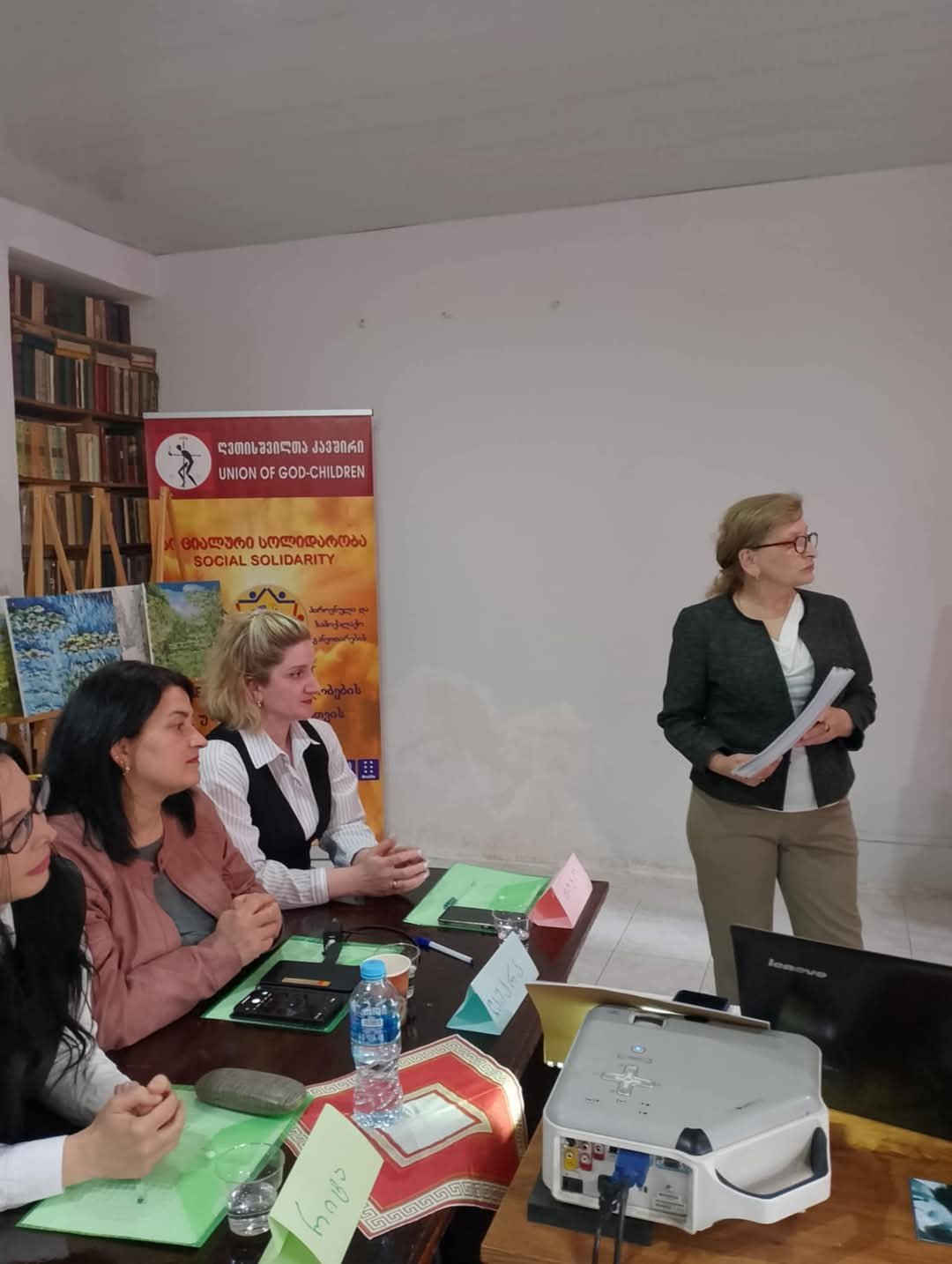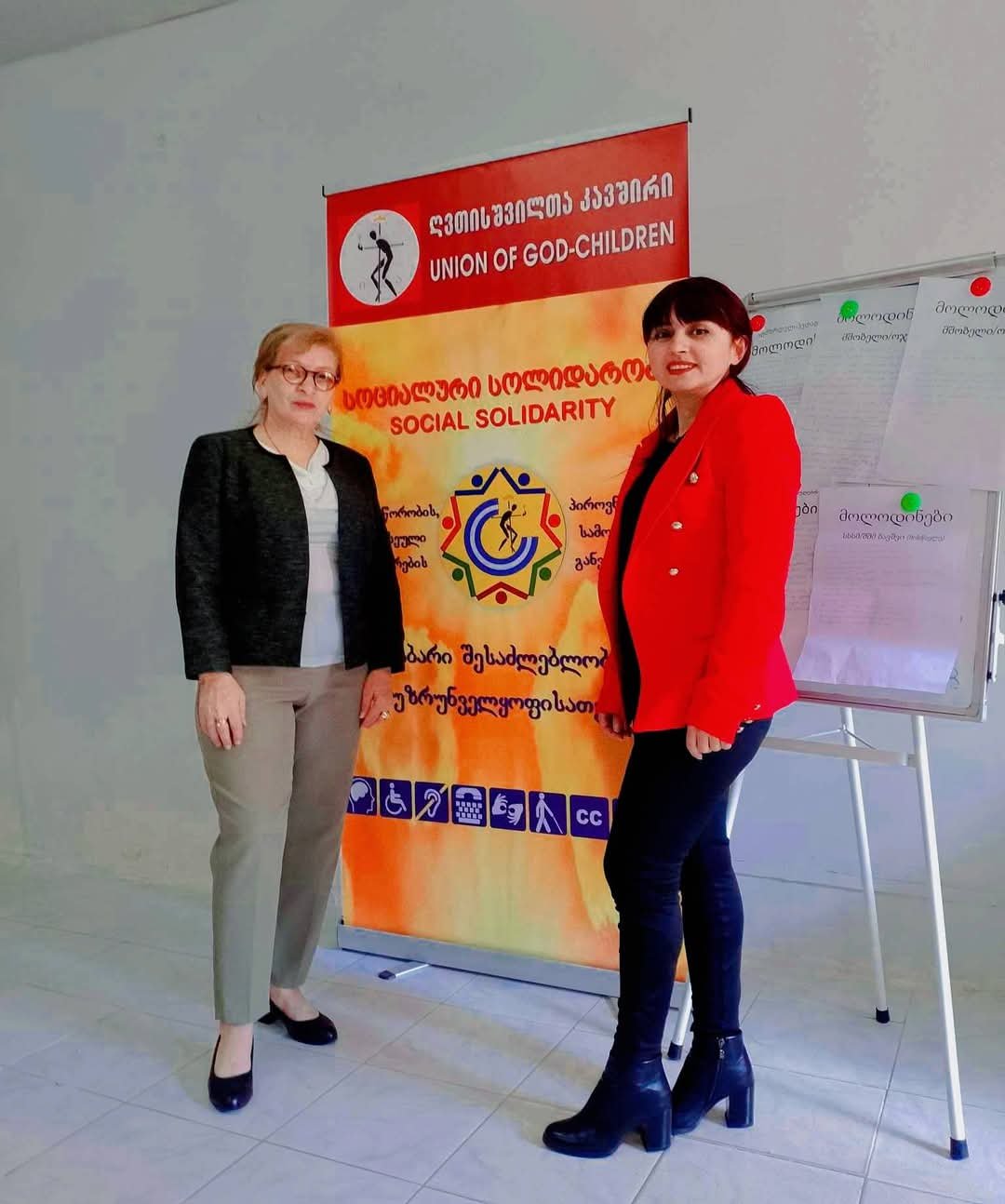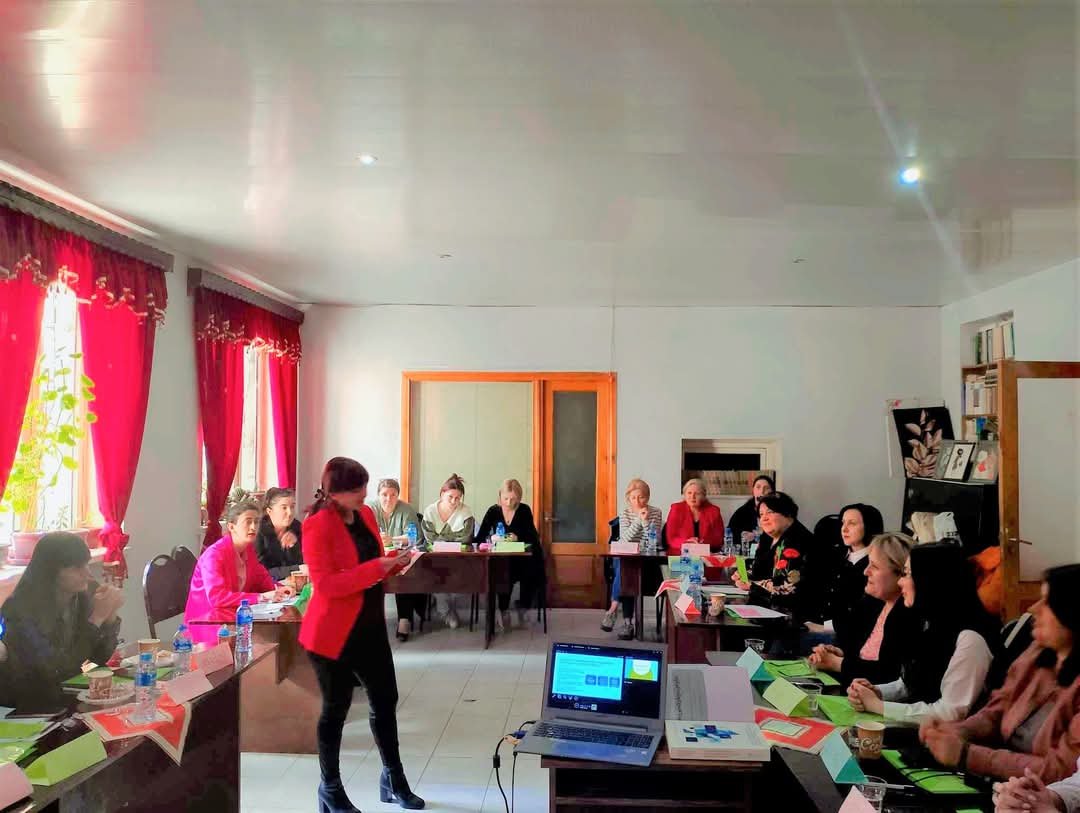
Creating Inclusive Spaces Begins with Raising Awareness
Inclusive education is one of the most vital challenges in today’s educational landscape. It calls for greater empathy, sensitivity, and professional readiness from every adult—especially those working in education. In an increasingly diverse world, the need for inclusive educational practices has never been more crucial. Educational institutions worldwide are recognizing that creating truly inclusive environments requires a fundamental shift in mindset, comprehensive training, and unwavering commitment from all stakeholders involved in the educational process.
Training on Strategies for Working with Children with Special Educational Needs and Disabilities

Inclusion is not merely a concept—it is a commitment to ensuring that every child feels safe, seen, and supported. Creating inclusive spaces begins with a fundamental step: raising awareness among educators, caregivers, and communities. When we understand the diverse needs of children with Special Educational Needs and Disabilities (SEND), we take a powerful step toward equity in education. This understanding forms the foundation for developing effective strategies and implementing meaningful changes in educational settings.
Recently, a specialized training was held focusing on strategies for effectively working with children with disabilities. The aim of the session was to empower professionals with knowledge, tools, and empathy necessary to build environments where every child can thrive. This comprehensive training program was designed to address the multifaceted challenges that educators face when creating truly inclusive learning spaces.
The training covered key areas, including:
- Understanding Different Types of Disabilities: from autism spectrum disorders, Down syndrome, and ADHD, to hearing and visual impairments. This included detailed discussions about the unique characteristics, challenges, and strengths associated with each condition.
- Creating Supportive Learning Environments: adapting the physical and emotional space to meet the needs of all learners. This encompassed everything from classroom layout and sensory considerations to establishing routines that provide security and predictability.
- Individualized Educational Strategies: using differentiated instruction and personalized approaches to support student development. Participants learned how to modify curriculum content, teaching methods, and assessment techniques to accommodate diverse learning needs.
- Building Communication Skills: especially important when working with non-verbal or speech-impaired children. This section focused on alternative communication methods, visual supports, and technological aids that can facilitate effective communication.
- Promoting Peer Inclusion and Social Participation: encouraging children to engage, cooperate, and learn from one another in a respectful atmosphere. Strategies for fostering positive peer relationships and creating opportunities for meaningful social interaction were extensively discussed.
The training was highly interactive, involving real-life case studies, role-play activities, and inclusive game demonstrations. Participants were encouraged to reflect on their own biases, challenge stereotypes, and reimagine what an inclusive classroom looks like. It became clear that true inclusion begins long before a child enters the classroom. It starts with educators who are willing to listen, adapt, and advocate. It starts with institutions that prioritize accessibility and equity. And it starts with raising awareness—because we cannot support what we do not understand.

Inclusive education is not just about the presence of children with disabilities in mainstream settings; it’s about meaningful participation and achievement. By equipping educators with strategies and compassion, we are building a future where no child is left behind. This requires ongoing commitment, continuous professional development, and a willingness to adapt and evolve teaching practices to meet the diverse needs of all learners.
Let us remember: inclusive spaces are built not just with ramps and visual aids, but with hearts that welcome every child for who they are. This fundamental truth underscores the importance of combining physical accessibility with emotional and social inclusion to create truly supportive learning environments.
On April 5–6, students of InterBusiness Academy participated in a two-day training titled: “Strategies for Working with Children with Special Educational Needs and Disabilities.” This intensive training program represented a significant step forward in the academy’s commitment to inclusive education.
The training was led by Ms. Nona Kentchuashvili, Head of the UNION OF GOD-CHILDREN OF THE WHOLE GEORGIA – ASSOCIATION OF DISABLED PERSONS, a dedicated professional with years of experience in the field. Her expertise and practical insights provided participants with valuable perspectives on implementing inclusive practices effectively.

On the first day, participants explored the fundamental principles of inclusive education—, access, participation, and support. Ms. Kentchuashvili emphasized that inclusion transcends mere physical presence in an educational space—it demands meaningful engagement, active participation, and carefully crafted opportunities for holistic development. She stressed that the foundation of successful inclusion lies in the mindsets and attitudes of educators, caregivers, and parents, as well as the nurturing environment they collectively create. These attitudes shape not only the physical space but also the emotional atmosphere that either enables or hinders a child’s growth.
The training delved deep into the National Standard for Early and Preschool Education, providing a comprehensive framework for inclusive practices. This standard meticulously outlines crucial elements: the design and adaptation of physical environments to accommodate diverse needs, evidence-based teaching methodologies that support different learning styles, structured yet flexible learning processes that allow for individual pacing, clearly defined expected outcomes that acknowledge various developmental trajectories, and robust quality assessment mechanisms to ensure continuous improvement in early childhood settings.
A significant portion of the training centered on understanding the social-emotional profile of the child—a critical yet often overlooked aspect of inclusive education. Participants explored methods for evaluating and nurturing a child’s emotional intelligence, developing empathy, fostering self-regulation skills, and building strong interpersonal relationships. This focus acknowledged that social-emotional competence is fundamental to successful inclusion and overall child development.
The second day was dedicated to practical application through intensive case study analysis. Participants engaged with real-world scenarios from preschool settings, examining complex situations involving children with diverse needs. They explored specific strategies for supporting children across the autism spectrum, those with hearing impairments, individuals with intellectual challenges, and children with various motor disabilities. Each case study provided valuable insights into creating individualized support systems.

The trainer particularly emphasized the importance of building robust communication bridges—highlighting that perceived barriers in language or behavior should be viewed as opportunities for creative connection rather than obstacles. She provided practical tools and strategies for establishing meaningful communication with all children, regardless of their abilities.
Special attention was devoted to creating a comprehensively supportive environment. This included detailed discussions about optimizing physical spaces, selecting and adapting teaching materials, developing effective communication strategies, and implementing personalized approaches that honor each child’s unique learning journey.
Through engaging interactive tasks and immersive role-play scenarios, participants gained not only theoretical knowledge but also developed practical skills, emotional intelligence, and the essential readiness needed to support each child as a unique individual.
This transformative training reinforced a fundamental truth: Inclusive education extends far beyond policy documents—it is a core value that manifests through authentic daily relationships, intentional active listening, and profound respect for every child’s uniqueness. InterBusiness Academy’s students, who represent the next generation of educators and caregivers, concluded the training equipped with both professional competence and a deeply human-centered mindset, prepared to provide unwavering support and love to those who need it most.






